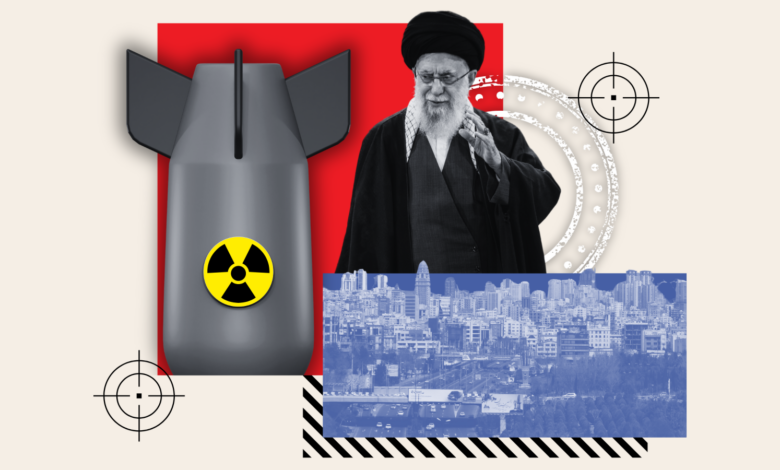Iran’s Nuclear Program: A New Chapter

By/Adnan Hashem
Since the assassination of Hassan Nasrallah in Lebanon, Iranian politicians and strategists have abandoned discussions about the strategies of politics and diplomacy. Talk of the Iranian nation and the duty of “sacred defense” of the nation has increased. Military rhetoric and calls by politicians to review the nuclear doctrine by manufacturing a bomb as soon as possible have escalated.
It was reported that the Iranian president, before his visit to Qatar, received a warning about the possibility of the plane being targeted by the Israeli occupation, to which he replied that he was ready to sacrifice himself for the Iranian nation. Words and phrases such as sacrifice, restoring dignity, protecting the nation, and a great Iran are being repeated by politicians, parliamentarians, and journalists in Iran. There is no doubt that they are preparing for the worst-case scenario, a new war at a time when the scars of previous wars, from the eight-year war with Iraq to the invasion of Iraq and Afghanistan at the beginning of the millennium, are still fresh. Therefore, the Iranian nation is not prepared for a war, which is what the leaders in Tehran have been saying.
Conservatives and reformists feel that they have been deceived by the West and that the main goal of the war in Lebanon and the assassination of the resistance axis leadership was to end and destroy the regime in Iran. Netanyahu’s statements about changing the Middle East were clear in their intention to destroy Iran. The assassination of Hassan Nasrallah and most of the top leadership of Hezbollah was a clear message that they were next. Therefore, they are preparing; the military in Iran considers it a targeting of the very essence of the country’s national security and that they are the next target.
Acquiring a nuclear bomb was prohibited under a fatwa issued by the Supreme Leader – regardless of the veracity of this claim, Iran has not developed a nuclear bomb so far – so it focused on developing long-range missiles and increasing their destructive power, as well as establishing the resistance axis: a group of militias spread across the Arab world. But that seems set to change if sensitive facilities in Iran are bombed. They are now seriously considering manufacturing a nuclear bomb, with missiles capable of carrying it. And because Israel is unable to confront Iran, the US will rush to fight the Iranians directly, and this is the bad scenario that is being built upon in “Sa’ad abad” Palace; and if that happens, manufacturing the bomb will take weeks, months if it is delayed.
Iranian strategists consider energy facilities to be sensitive to their country’s deteriorating economy, and with them, the danger in the region increases; therefore, it is not only the nuclear facilities that are feared to be struck and which could ignite a war in the region.
October 7 changed the dynamics of international issues and politics, and national liberation movements, and its ability to cause a major shock – which the Palestinian cause needed – and although what is happening today between Israel and Iran is a consequence of that major event, the Arab world will pay the price for it, and the Arabian Peninsula in particular, as our national security is not immune. With all this Western crowding near our waters in a world that no longer operates on the basis of rules, and while we are adopting a neutral stance at the moment, the time will come when we must choose a side.





